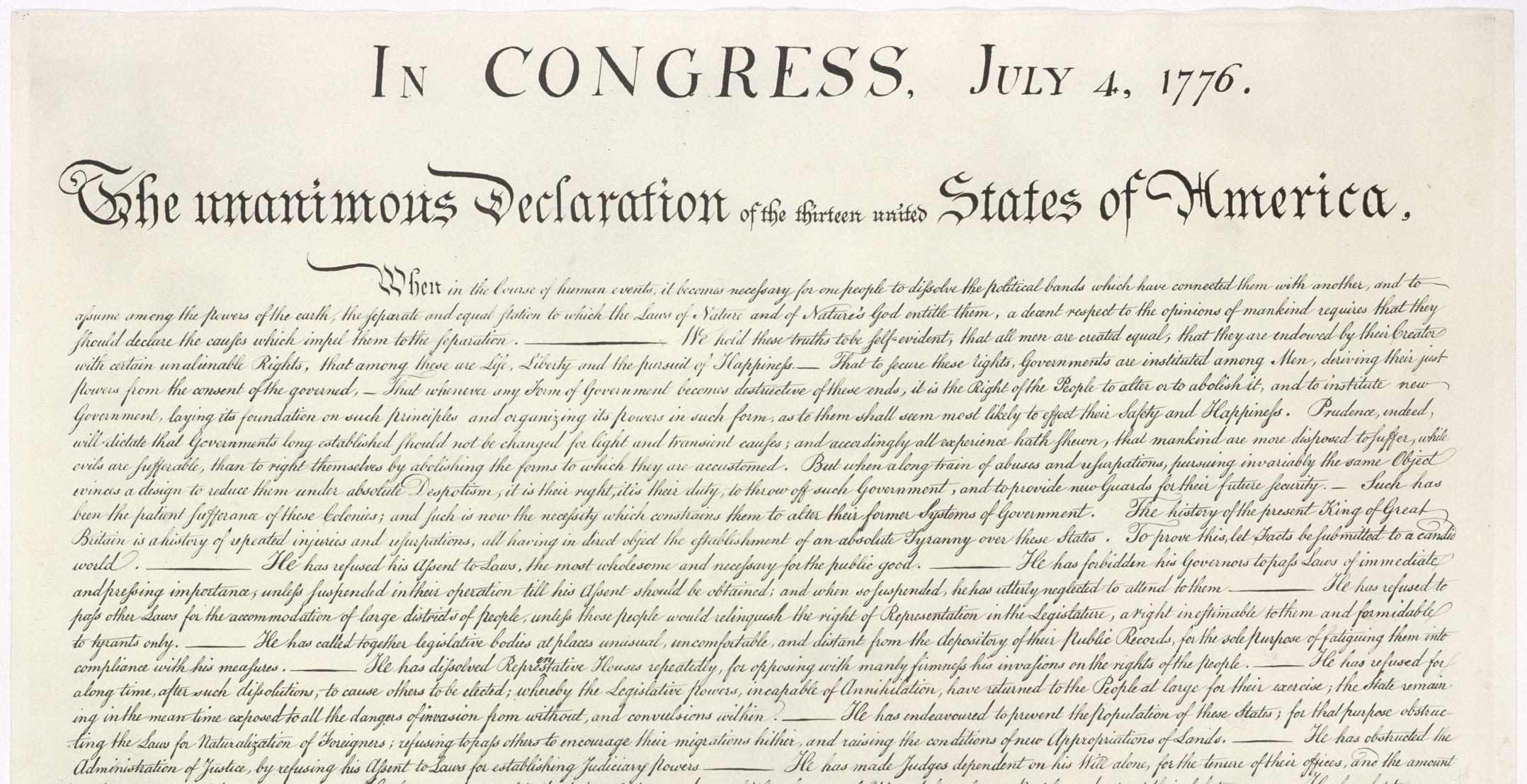Homelessness denies the unalienable rights our nation’s founders promised
AUSTIN, Texas (July 3, 2020) — This holiday weekend, as you hunker down in your home (perhaps to watch and re-watch the Broadway recording of “Hamilton”), take a moment to consider what the Founding Fathers fought for.
The rights to life, liberty, and the pursuit of happiness are unalienable, they wrote nearly 250 years ago. But those rights are not available to people experiencing homelessness in equal measure.
Let us be clear: Housing is a human right, and the inability of the richest country in the world to provide this basic necessity to all our neighbors two and a half centuries after its founding is a betrayal of the vision its framers saw of a free and prosperous society.

President Franklin Delano Roosevelt recognized this fact in 1944 when he proposed his Second Bill of Rights, which included “the right of every family to a decent home.”
“As our Nation has grown in size and stature, however — as our industrial economy expanded — these political rights proved inadequate to assure us equality in the pursuit of happiness,” he told the American people in a radio address. “We have come to a clear realization of the fact that true individual freedom cannot exist without economic security and independence. ‘Necessitous men are not free men.'”
Homelessness denies these basic rights. Living without adequate shelter can dramatically shorten a person’s life.
People experiencing homelessness are much more likely to suffer serious and potentially fatal health conditions, such as heart attack, HIV, and substance use disorders. They are also less likely to have regular access to medical care.
In Austin, 43% of people experiencing homelessness reported being attacked or beaten up.
All of this leads to a considerably shorter life expectancy — estimates range from 12-20 years shorter — for someone living on the street.
“Housing is health care,” writes the National Health Care for the Homeless Council. “While health care providers do all they can to mitigate the effects of the streets, no amount of health care can substitute for stable housing.”
People experiencing homelessness cannot exercise the same liberty as their housed neighbors. In Austin, nearly two-thirds of unhoused people report they don’t have any income, no steady source of funds to enjoy the freedoms many of us take for granted.
Criminal justice involvement and homelessness are intimately linked, too. The United States Interagency Council on Homelessness reports as many as 15% of people in jails across the U.S. have experienced homelessness. Nearly 50,000 Americans leave jails and enter emergency shelters every year.
Austin has taken steps to reduce criminal justice entanglements by decriminalizing simple acts of survival a year ago. USICH recommends more jurisdictions seek alternatives to criminalization. But until communities focus adequate resources on creating permanent housing, the full promise of liberty cannot be realized.
The pursuit of happiness is perhaps the hardest to define of these unalienable rights, yet the easiest to recognize in its absence.
In 2018, Austin’s Action Plan to End Homelessness found 69% of people experiencing homelessness had no planned activities beyond survival. A year later, ECHO’s Needs and Gaps Report identified that 70% of people experiencing homelessness had no planned activities that bring them happiness or fulfillment.
When your only goal in a day is to make it to the next one, pursuing happiness is all but impossible.
We know the solution to all of these problems. It’s the same solution FDR proposed 76 years ago. We can and must invest in safe, stable housing for all of our neighbors.
Housing ends homelessness. Housing helps restore all Americans’ unalienable rights.


